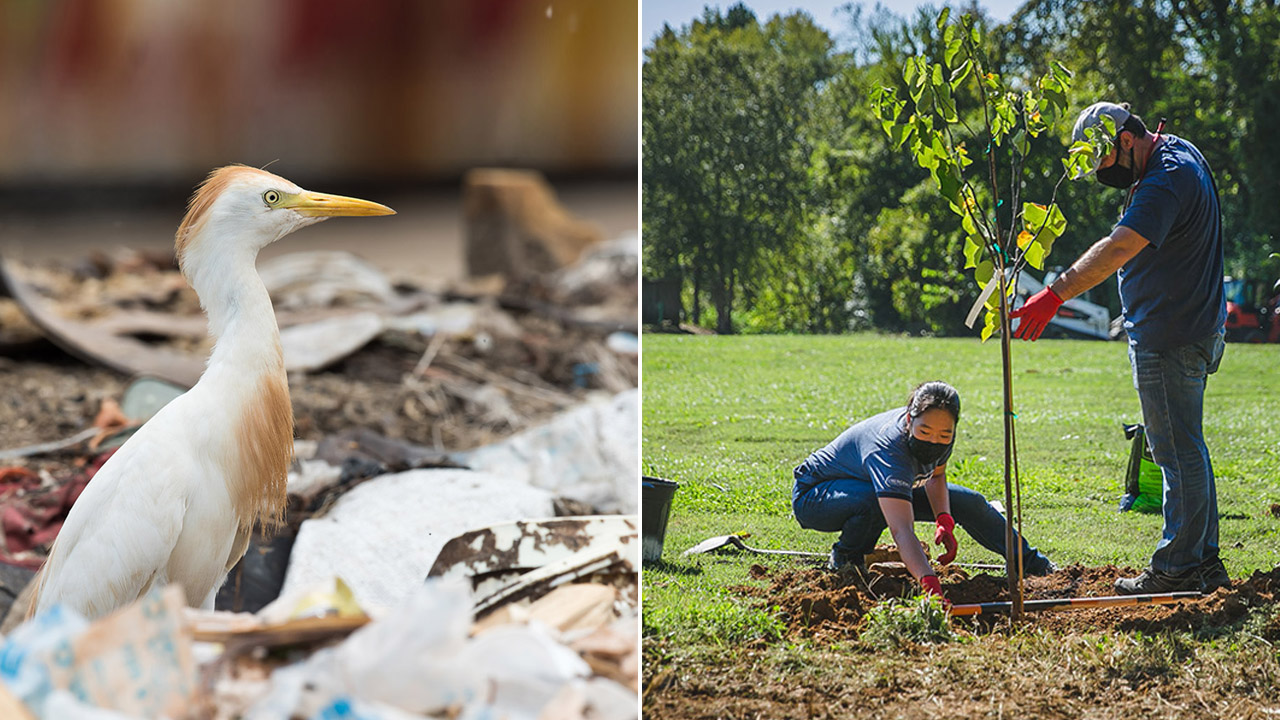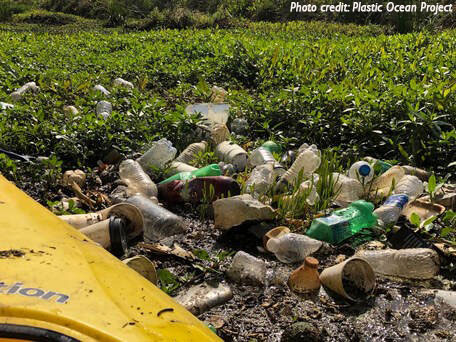Clean and Green: Program Takes Action on Behalf of Wildlife and Habitats


North Carolina Wildlife Federation is tackling critical conservation issues head-on with Keep it Clean, Make it Green. A wildlife habitat restoration program, clean and green helps protect wildlife from being harmed by trash and keeps waterways clean and clear.
We’ve all seen online videos showing heroic people saving wildlife from being entangled, impaled, and strangled by plastic bags, six-pack rings, straws, and other trash. We’ve watched our streams and creeks collect debris and become coffee-like, thick from development runoff. And we’ve witnessed wildlife lose their habitat as acres of trees are cut down for development.
North Carolina Wildlife Federation (NCWF) is tackling these critical conservation issues head-on with the Keep it Clean, Make it Green habitat restoration project.
The program will mobilize thousands of volunteers to remove trash from neighborhood open spaces, waterways, and public lands and then plant native trees and pollinator plants in their place. For every 25 pounds of trash collected, one tree will be planted with the goal of removing thousands of pounds of plastics and trash and planting hundreds to thousands of trees.
Connecting and Engaging Communities
Keep it Clean, Make it Green supports the connectedness of water quality, humans and wildlife, forest cover and habitat. Through this program, we’re creating conservation communities and promoting habitat restoration.
Trees are the building block for a lot of our habitat ecosystems, whether they’re providing nesting for owls, hawks and songbirds, resting areas for turkeys at night, or the forage they’re providing from the seeds, nuts and fruits they bear.
The program is especially timely given everyone’s awareness and concern with single-use plastics being improperly disposed of. Not only does it cause problems for wildlife, it negatively affects water quality and neighborhood appeal.
Wildlife Protection, Ecosystem Restoration
Removing trash and planting native species will help restore complex ecosystems that can then provide residents with healthier water and air and more moderate temperatures. Keep it Clean, Make it Green will also help wildlife thrive and provide critical wildlife corridors for migratory butterflies and birds.
In addition to removing trash from urban environments and planting trees and pollinator plants, the program will help:
- Protect wildlife from trash entanglement, strangulation and ingestion;
- Increase tree canopy and enhance habitat;
- Improve water quality and reduce sediment load;
- Remove carbon dioxide from the environment;
- Improve neighborhood appeal and property values; and
- Engage and strengthen communities.
Climate Resiliency and Coastal Communities
Launch of the Keep it Clean, Make it Green program addresses a wider issue affecting wildlife and their habitats throughout North Carolina: Climate change.
 Climate has a tremendous impact on our state through rising sea levels and increased frequency of superstorms. As a result, our coastal communities are losing trees at an alarming rate. Storms also compound the amount of manmade debris entering our rivers, waterways and estuaries. Wildlife is at great risk of losing habitat and facing even further declines.
Climate has a tremendous impact on our state through rising sea levels and increased frequency of superstorms. As a result, our coastal communities are losing trees at an alarming rate. Storms also compound the amount of manmade debris entering our rivers, waterways and estuaries. Wildlife is at great risk of losing habitat and facing even further declines.
For example, many loggerhead sea turtle eggs don’t hatch after disastrous storms and hurricanes because they’re submerged or washed away. Runoff and sedimentation flowing into rivers and waterways causes pollution, resulting in die-offs of fish, oysters and other aquatic species.
Strengthening Community Conservation
Keep it Clean, Make it Green aims to help our communities reduce barren landscapes and create green infrastructure throughout their urban and suburban environments. The program encourages people to develop their ethic of environmental stewardship and be part of a sustained and inclusive conservation network.
Combining individual and collective efforts is the key to immediate conservation results. It also serves as an entry point as we build a community of conservation-minded citizens who are ready to engage in future conservation projects.
To participate, contact NCWF Director of Conservation Partnerships, Tara Moore, at natalie@ncwf.org.
To invest in NCWF-led wildlife and habitat efforts, donate today. You can also peruse the NCWF Wish List on Amazon and purchase an item to be used for NCWF programs and events, including habitat clean-ups and habitat restoration.

